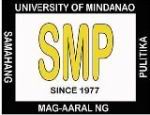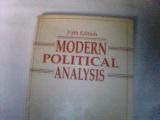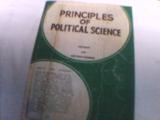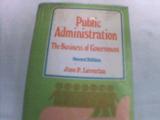Contents:
I. Overview of the American Occupation in the
II. Personalities During the American Occupation
III. American Commissions in the
IV. Commonwealth of the
a. Achievement of the Philippine Commonwealth
b. Failures of the Philippine Commonwealth
V. American Heritage
VI. Synthesis
Guidelines for the Term Paper:
1. Minimum of Seven (7) pages, maximum of ten (10) pages
2. Short (White) Bond Paper
3. Single Space
4. Double Space before starting a new paragraph
5. 1.5 inches Left Margin
6. 1 inch Right, Top and Bottom Margin
7. For the Font Type. Use Arial or Times New Roman
8. For the Font Size. Use 12 for Arial or 13 for Times New Roman
9. The Body of the term paper must be presented continuously
10. Use Separate Page for the Cover (Title) Page, Table of Contents, and References.
11. For the Reference. Arrange alphabetically.
a. Cite the Author
Example:
Bates, R. (2001). Prosperity and violence.The political
economy of development.
b. For the Title or Article
Example:
Human Bahavior at Work: Organizational Behavior (1997).
Fifth Edition.
c. For the Website
Example:
http://en.wikipedia.org/wiki/Philippine%E2%80%93American_War)
12. Use the Bold or Italics for the important term, phrase or sentence (Ex. Title, Side Heading, and other important information)
13. Please be guided accordingly.
Sample Format
Note: Separate Page (Paper). Click the Sample Front Page.
_______________________________________
Note: Separate Page (Paper). Click the Sample Table of Contents.
___________________________________________
Body
Note: Maximize the space.
I. Background of the Study
Local legislative councils need clearly articulated mission statements, internal controls, performance audit procedures, codes of ethics, and a host of other management and conflict resolution techniques in order to function in an open, accountable and effective manner. The training and technical assistance to improve legislators skills and effective institutional strengthening requires a clear statement that should be of national priority by the national government.
In the
II. Review of Related Literature
To make the study more comprehensive, the researcher read several books and materials on management competence and conflict resolution skills in the internet, library, and the Offices of the City Councilors.
Caga-anan as cited by
Leveriza (1990) indicated that communication is not an integral part of management process but it is management itself. Effective communication is an essential management tool in attaining the goals of the organization. Communication can increase significantly decision making effectiveness. It can serve as a guide to action in analysis of the operational problems of the organization and the failure to develop the communication skills may trouble the management efforts.
III. Theoretical Framework
This study is anchored on the theory of Fisher et al. (1991) which states that it is possible to reach win/win agreements if one can create a rational process where the right people are involved, the necessary data is available to fully analyze the conflict, there is a structure, and particular procedures and rules are to be followed. Indeed, providing structure, with procedures and ground rules, can provide a psychological container in which problem solving can occur and agreements can be made.
The above mentioned theory is supported by Berg and Smith (1987) that conflict and aggression are normal aspects and reflections of the human condition. Conflict is neither positive nor negative in and of itself. Rather, it is an outgrowth of the diversity that characterizes our thoughts, attitudes, beliefs, perceptions, and our social systems and structures. Differences and conflict stir up feelings of discomfort, irritation, and anxiety. Because conflict stirs up these difficult feelings, it is often viewed as a problem to be fixed or gotten rid of, rather than an expression of a polarity/paradox that is inherent in group life.
_______________________________________________
Note: Separate Page (Paper). Click the Sample Reference.
















